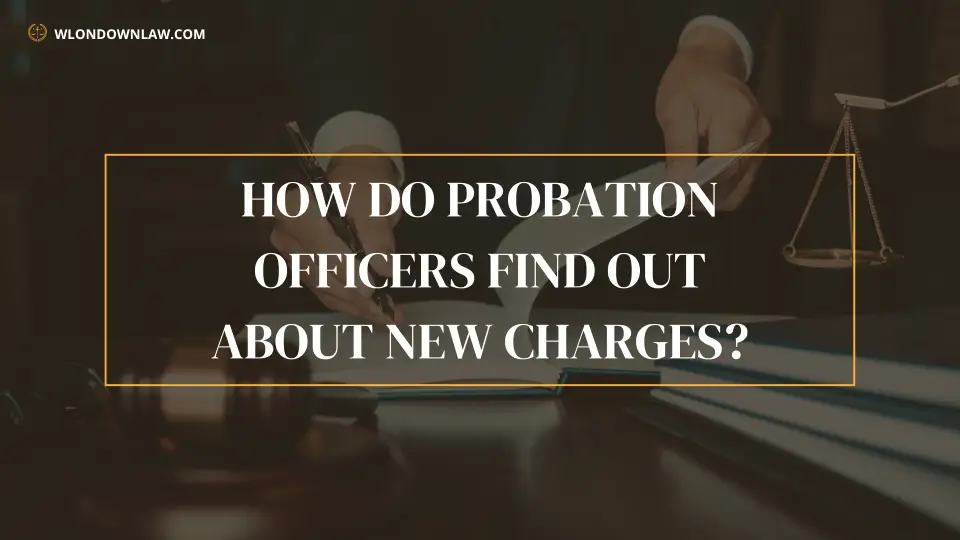Being a tenant can sometimes be incredibly stressful, especially when your landlord’s actions, or lack thereof, start to impact your well-being. This guide will help you understand if and how you can sue your landlord for emotional distress, providing clarity on your rights and the legal avenues available.
Understanding Emotional Distress Claims Against Landlords
Overview of Tenant Rights
It’s incredibly frustrating when your living situation, which should be a sanctuary, becomes a source of anxiety due to landlord misconduct. Many tenants wonder if they can actually sue a landlord for emotional distress, especially when the actions of their landlord cause emotional distress or lead to emotional distress.
This article aims to shed light on this complex but increasingly common type of personal injury claim against your landlord, helping you navigate your tenant rights.
What Constitutes Emotional Distress?
When it comes to suing your landlord for emotional distress, it’s not just about feeling upset; it’s about experiencing significant emotional suffering due to their actions.
We’ll explore what legally constitutes an emotional distress claim, distinguishing between general frustration and the severe emotional impact required for a successful lawsuit. Understanding this distinction is crucial before you decide to file a claim or sue landlords.
Scope of the Article
This comprehensive guide will walk you through the grounds for an emotional distress claim, how to effectively prove that your landlord caused emotional distress, and what kind of compensation for emotional distress you might be able to seek.
We will also cover the legal steps involved in suing your landlord for emotional distress and provide vital insights into navigating emotional distress cases with a skilled attorney.
What is “Emotional Distress” in a Legal Context?
Definition of Emotional Distress
In the eyes of the law, emotional distress is defined as non-physical harm or suffering that arises from another party’s intentional or negligent actions. It’s more than just being inconvenienced; it signifies a genuine psychological impact.
This could be anything from severe anxiety and depression to loss of enjoyment of life, often forming the basis for emotional distress lawsuits, particularly when considering suing your landlord.
Signs & Symptoms of Emotional Distress
Recognizing the signs and symptoms of emotional distress is vital for substantiating an emotional distress claim against your landlord.
These can manifest as sleep disturbances, chronic anxiety, depression, mood swings, or even physical symptoms like headaches or digestive issues.
Often, these symptoms might be diagnosed by a medical professional, providing objective evidence needed to prove you suffered emotional distress.
Is Emotional Distress a Valid Reason to Sue?
Absolutely, emotional distress is a valid reason to sue, especially when it arises from a landlord’s negligence or intentional infliction of emotional distress. While not every annoyance merits a lawsuit, if your landlord’s behavior directly leads to significant emotional suffering and meets specific legal criteria, you have grounds to sue.
This is particularly true in cases where a landlord’s actions, like wrongful eviction or harassment, cause emotional distress.
Grounds for Suing: Landlord Negligence & Intentional Misconduct
Understanding Landlord Negligence
Landlord negligence is a critical concept when considering an emotional distress claim against your landlord. It refers to a landlord’s failure to exercise reasonable care in maintaining a safe and habitable living environment, which subsequently leads to tenant harm, including emotional distress.
This means if your landlord was negligent and their actions directly caused you to suffer emotional distress, you might have strong grounds to sue.
Intentional Misconduct & Harassment
Beyond mere negligence, intentional misconduct and harassment by a landlord can form a robust basis for an emotional distress claim.
When a landlord deliberately acts in a way that is designed to disturb your peace, violate your tenant rights, or coerce you, this constitutes intentional infliction of emotional distress.
Such egregious behavior provides clear justification to sue a landlord, potentially leading to significant punitive damages designed to punish the landlord.
Examples of Landlord Misconduct
Numerous situations can lead to a valid emotional distress claim against a landlord. Examples of landlord misconduct that can cause emotional distress include illegal eviction or wrongful eviction, where the landlord attempts to remove you without proper legal process, or consistent landlord harassment, like excessive or unannounced entries into your dwelling.
Other severe instances that often lead to emotional distress for tenants include a landlord’s failure to maintain habitable living conditions, such as prolonged lack of heat or essential repairs, which falls under landlord negligence.
Proving Your Emotional Distress Claim
The Burden of Proof for Emotional Distress
When pursuing an emotional distress claim against your landlord, the burden of proof rests squarely on your shoulders. This means you must present sufficient objective evidence to demonstrate that you genuinely suffered emotional distress as a direct result of your landlord’s actions or negligence.
It’s not enough to simply state you are upset; you need to show tangible impacts on your mental and emotional well-being to support your claim against your landlord.
Documentation is Key
Thorough documentation is absolutely critical for anyone looking to sue their landlord for emotional distress. This includes obtaining medical records, therapist notes, or psychiatric evaluations that confirm a diagnosis of emotional distress.
Keeping a detailed journal or diary outlining the incidents with your landlord and how they affected your emotional state can also be invaluable, as it provides a chronological record of your suffering and the landlord’s actions.
Gathering Evidence of Distress
To effectively prove your emotional distress claim, you must gather a wide array of evidence beyond just medical records. This might include witness testimonies from friends, family, or even co-workers who have observed your distress and changes in behavior.
Additionally, any evidence of the landlord’s actions—such as photos, videos, emails, text messages, or written communication—that demonstrate their negligence or intentional infliction of emotional distress will significantly strengthen your lawsuit and help you seek compensation.
Calculating Compensation: “How Much Can I Get?”
Factors Influencing the Value of Your Claim
When considering how much compensation you can expect for an emotional distress claim against your landlord, several factors will significantly influence the final amount.
The severity and duration of the emotional distress you’ve suffered are paramount; deeply impactful, long-lasting distress generally warrants higher compensation.
The overall impact on your daily life, including your work, social interactions, and relationships, will also be heavily weighed, as will the extent of medical treatment and therapy required to address your emotional suffering.
Furthermore, clear proof of your landlord’s intent or gross negligence in causing your emotional distress can significantly increase the potential damages, as can your state’s specific laws and precedents regarding personal injury claims.
Types of Damages You Can Claim
In an emotional distress lawsuit against your landlord, you can typically claim several types of damages to recover compensation for emotional distress. Actual damages cover tangible losses such as medical bills for therapy or psychiatric care, lost wages if your emotional distress prevented you from working, and even relocation costs if you were forced to move due to the landlord’s actions.
Pain and suffering, often referred to as non-economic damages, compensate you for the intangible aspects of your distress, like anxiety, depression, and loss of enjoyment of life; these are often calculated using methods like the multiplier or per diem approach.
In egregious cases where the landlord’s conduct was particularly malicious or reckless, punitive damages may also be awarded, specifically designed to punish the landlord and deter similar future behavior.
Estimating Potential Compensation
It’s crucial to understand that there is no fixed amount when estimating potential compensation for an emotional distress claim against your landlord; each case is highly specific and depends on its unique circumstances and the evidence presented.
While it’s impossible to give a precise figure without a thorough review of your case, a skilled attorney specializing in tenant rights or personal injury claims can provide a more informed estimate.
They will analyze the severity of your emotional distress, the documented impact on your life, the landlord’s culpability, and relevant state laws and precedents to help you understand the potential amount you can sue for and how much compensation to ask for.
The Legal Process of Suing Your Landlord
Initial Steps After an Incident
If you believe your landlord’s actions have caused you significant emotional distress, taking the right initial steps is crucial for building a strong emotional distress claim.
First and foremost, document everything: keep a detailed log of all incidents, including dates, times, and descriptions of what occurred, and how it affected you emotionally. Preserve any relevant communications with your landlord, such as emails, text messages, or letters, as these provide concrete evidence of their conduct.
Additionally, seek medical or psychological help promptly; a professional diagnosis and ongoing treatment not only aid your recovery but also provide vital medical records to prove your emotional suffering.
Communicating any complaints to your landlord in writing is also essential, creating a clear paper trail that demonstrates your efforts to resolve the issues before resorting to a lawsuit.
When to Contact a Personal Injury/Tenant Rights Lawyer
Deciding when to contact a personal injury or tenant rights lawyer is a pivotal step in pursuing an emotional distress claim against your landlord.
It’s generally advisable to seek legal advice as soon as you realize your landlord’s actions are causing you significant emotional distress and they are unresponsive to your attempts at resolution.
An experienced attorney, especially one with a strong background in emotional distress cases, can assess the strength of your potential lawsuit, explain your tenant rights, and guide you through the complexities of proving emotional distress and seeking compensation.
They can help you understand the amount you can sue for, navigate the intricacies of the legal process, and determine if you have a valid personal injury claim worth pursuing against your landlord.
Understanding the Costs of Suing
The cost of suing your landlord for emotional distress is a significant consideration for many tenants. While it’s natural to worry about legal fees, many personal injury and tenant rights law firms operate on a contingency fee basis for emotional distress claims.
This means your lawyer only gets paid if they win your case, typically taking a percentage of the final settlement or award. However, you might still be responsible for court filing fees, deposition costs, and other litigation expenses, which can vary.
It’s essential to have a clear discussion with your prospective lawyer about their fee structure and all potential costs upfront, so you fully understand the financial implications of pursuing an emotional distress lawsuit against your landlord.
Important Considerations & FAQs
Can a Landlord Sue for Emotional Distress?
While less common, it is indeed possible for a landlord to sue a tenant for emotional distress, though the circumstances allowing for such a claim are generally quite specific and stringent.
Similar to a tenant’s emotional distress claim, the landlord would need to provide substantial objective evidence that the tenant’s actions—such as severe harassment, vandalism leading to significant stress, or prolonged and deliberate disruption—directly caused them severe emotional suffering.
This would typically involve demonstrating intentional infliction of emotional distress rather than mere annoyance, proving the tenant’s actions were beyond what is reasonably expected in a landlord-tenant relationship and had a verifiable psychological impact.
Does Landlord Insurance Cover Negligence?
Whether landlord insurance covers negligence and resulting emotional distress claims is a nuanced question, as policies vary significantly.
Generally, standard landlord insurance policies are designed to protect against property damage and liability for injuries that occur on the premises. Some policies may offer limited coverage for personal injury, which could, in certain circumstances, extend to a claim of emotional distress caused by the landlord’s negligence, especially if it’s tied to a covered event like a structural failure they neglected.
However, intentional infliction of emotional distress or gross negligence might fall outside the scope of typical coverage, potentially leaving the landlord personally liable for punitive damages.
It is crucial for landlords to review their specific policy details and for tenants to understand that while insurance might cover some aspects, it is not a guaranteed remedy for all types of emotional distress claims against landlords.
What Not to Say to Your Landlord
When dealing with a difficult landlord, particularly if you anticipate making an emotional distress claim or if your landlord caused you emotional distress, what you say—or don’t say—can significantly impact your case.
Avoid making threats, engaging in heated arguments, or using accusatory language, as this can escalate the situation and potentially be used against you in court.
Do not admit any fault or responsibility for issues, even if you feel partially to blame, and refrain from discussing specific legal strategies or the amount of compensation for emotional distress you might seek.
Keep all communications professional, factual, and ideally in writing, focusing on the problem at hand and your attempts to resolve it, which helps maintain the integrity of your potential lawsuit and strengthens your tenant rights.
Conclusion: Seeking Justice and Protecting Your Rights
Reiterating Tenant Rights
As we’ve explored, your tenant rights extend beyond just a safe roof over your head; they encompass your right to peace of mind and freedom from undue emotional distress caused by your landlord’s actions or negligence.
It is possible to sue a landlord for emotional distress, especially when their conduct constitutes severe landlord negligence or intentional infliction of emotional distress, significantly impacting your well-being.
Understanding the grounds for such an emotional distress claim, from illegal eviction to persistent landlord harassment, empowers you to recognize when your rights have been violated and consider pursuing a lawsuit for the emotional damage incurred.
Importance of Legal Guidance
Navigating an emotional distress claim against your landlord is a complex legal journey that greatly benefits from professional assistance. The importance of seeking legal advice from a skilled attorney specializing in tenant rights or personal injury cannot be overstated.
An experienced personal injury law firm can help you understand the full scope of your emotional distress claim, guide you through the process of gathering crucial documentation and evidence, and provide an accurate assessment of the amount you can sue for, including potential punitive damages.
A dedicated attorney will be instrumental in fighting for your compensation for emotional distress and ensuring justice is served, allowing you to focus on healing from the emotional distress due to your landlord’s actions.
Final Thoughts for Tenants
If you find yourself suffering emotional distress due to your landlord’s actions, remember that you are not alone and you have avenues for recourse. While the process of suing your landlord for emotional distress may seem daunting, armed with knowledge of your tenant rights, diligent documentation, and the support of an experienced emotional distress lawyer, you can seek the justice and compensation you deserve.
Taking proactive steps to address the landlord-caused distress is crucial, ultimately helping you to reclaim your peace of mind and ensuring that those who negligently or intentionally cause emotional distress are held accountable.


